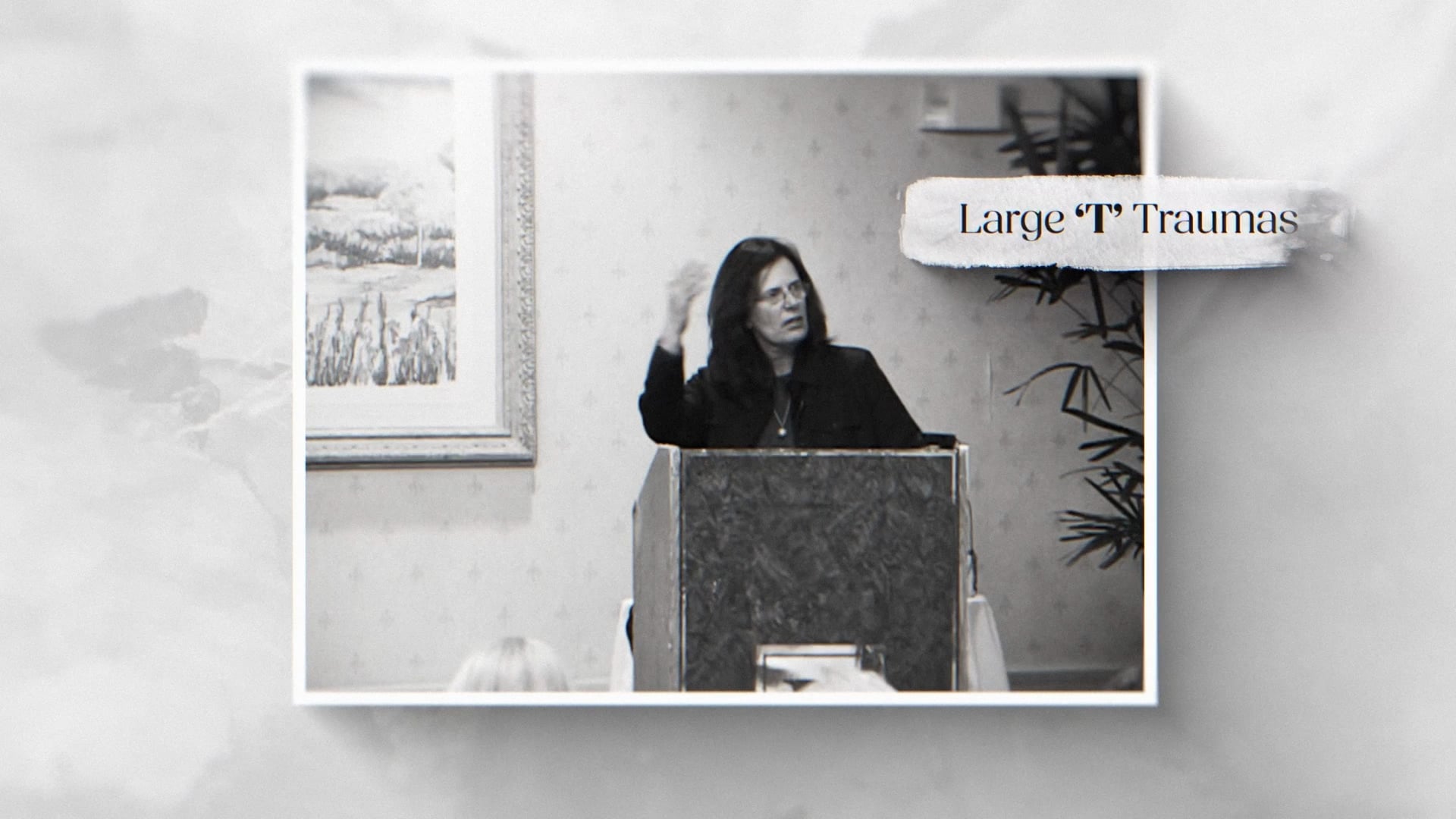
Defining Trauma
What we attempt to do is sensitize clinicians to the notion of what is trauma. Now the thing that we have to keep in mind is that PTSD is an artificial construct that we put together. So he basically said that criterion A events, these large T events, if you will, had to meet certain criteria before you could diagnose PTSD. So if someone lost a spouse in a sudden death, we could diagnose PTSD.
But if someone's wife of thirty or forty years announced that she was getting a divorce, the husband could have exactly the same symptoms, but we couldn't diagnose PTSD because criterion a wasn't met. In other words, it doesn't matter. What we're looking at in terms of trauma is a dictionary definition of trauma. We're basically saying if it's a disturbing event that has had a lasting negative effect upon self and psyche is a trauma. The primary basis of pathology is experience. It is unprocessed memory experience.
And so the touchstone memories, the ones that we're looking for, the ones that are hot, the ones that are negative, are the ones that we're looking for, and they can be single event, large T traumas for post-traumatic stress disorder. They can be small t traumas, those ubiquitous events from childhood, being bullied, being made fun of, being rejected by some boyfriend. Those negative events, if they're stored and still hot, can have a negative effect on the present. And even though it may look small from an adult perspective, as a child, it was not small.
As a child, it was terrible. It was the the evolutionary equivalent of getting cut out of the herd. And right there, you've got survival fear. Not being loved, death. Not being wanted, death. Not being able to be accepted, death. All of those survival fears automatically arise, and basically, those are the way that the negative experiences can get stored. So it doesn't matter whether it's something you as an adult agree is a trauma, but rather if it has a negative impact on that individual, it can be an experiential contributor to a present dysfunction.